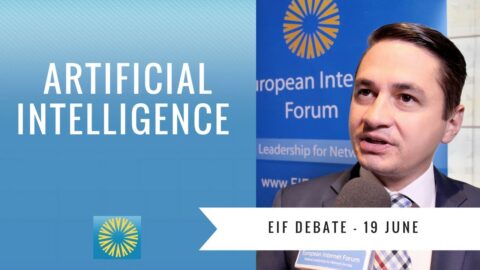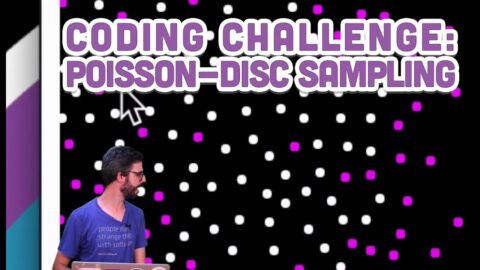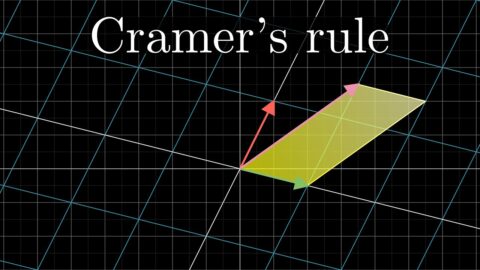If you are into cybersecurity or any other field, you probably want to learn about AI and ML. They can really help your resume and help you increase the $$$ you earn.
AI just become Sentient? And will it take your job? Or is AI just a fantastic opportunity for you to get a better job? In this interview with Dr Michael Pound we discuss hype vs reality and get a quick start guide on how to learn AI.
// MENU //
00:00 – Coming Up
00:45 – Intro
01:10 – Michael Pound introduction
02:49 – Will AI take our jobs?
04:55 – What is LaMDA?
08:38 – Can Python functions get lonely?
11:26 – The definition of "sentience"
11:59 – AI vs Machine Learning
18:48 – Neural Networks
19:49 – Malware example
21:59 – Stochastic Gradient Descent
22:30 – Supervised learning
23:45 – Unsupervised learning
26:03 – Reinforcement learning
27:35 – Are the robots taking over?
30:14 – What is AI really good at?
33:28 – Definition of Deep Learning
35:37 – Neural Networks
36:53 – What to learn
40:50 – Using PyTorch
43:52 – Google colab
44:48 – Study recommendations
46:16 – The demand for AI skills
48:15 – Teaching cyber security
50:06 – Final Advice
55:09 – Conclusion
// Video mentions //
ComputerPhile (lambda is not sentient):
Data Analysis Playlist:
Neural Networks Playlist:
Computer Vision Playlist:
// BOOK //
Deep learning by Ian Goodfellow, Yoshua Bengio and Aaron Courville:
// COURSE //
AI For Everyone by Andrew Ng:
// PyTorch //
Github:
Website:
Documentation:
// Mike SOCIAL //
Twitter:
YouTube:
Website:
// David SOCIAL //
Discord:
Twitter:
Instagram:
LinkedIn:
Facebook:
TikTok:
YouTube:
// MY STUFF //
// SPONSORS //
Interested in sponsoring my videos? Reach out to my team here: sponsors@davidbombal.com
lamda
python
neural network
ai
machine learning
deep learning
sentient
google ai
mike pound
michael pound
dr michael pound
computerphile
artificial intelligence
google ai sentient
google ai lamda
google ai sentient conversation
google ai alive
ai jobs
Please note that links listed may be affiliate links and provide me with a small percentage/kickback should you use them to purchase any of the items listed or recommended. Thank you for supporting me and this channel!
#ai #computerphile #lamda











// MENU //
00:00 – Coming Up
00:45 – Intro
01:10 – Michael Pound introduction
02:49 – Will AI take our jobs?
04:55 – What is LaMDA?
08:38 – Can Python functions get lonely?
11:26 – The definition of “sentience”
11:59 – AI vs Machine Learning
18:48 – Neural Networks
19:49 – Malware example
21:59 – Stochastic Gradient Descent
22:30 – Supervised learning
23:45 – Unsupervised learning
26:03 – Reinforcement learning
27:35 – Are the robots taking over?
30:14 – What is AI really good at?
33:28 – Definition of Deep Learning
35:37 – Neural Networks
36:53 – What to learn
40:50 – Using PyTorch
43:52 – Google colab
44:48 – Study recommendations
46:16 – The demand for AI skills
48:15 – Teaching cyber security
50:06 – Final Advice
55:09 – Conclusion
// Video mentions //
ComputerPhile (lambda is not sentient): https://youtu.be/iBouACLc-hw
Data Analysis Playlist: https://www.youtube.com/watch?v=NxYEzbbpk-4&list=PLzH6n4zXuckpfMu_4Ff8E7Z1behQks5ba
Neural Networks Playlist: https://www.youtube.com/watch?v=py5byOOHZM8&list=PLzH6n4zXuckoezZuZPnXXbvN-9jMFV0qh
Computer Vision Playlist: https://www.youtube.com/watch?v=C_zFhWdM4ic&list=PLzH6n4zXuckoRdljSlM2k35BufTYXNNeF
// BOOK //
Deep learning by Ian Goodfellow, Yoshua Bengio and Aaron Courville: https://amzn.to/3vmu4LP
// COURSE //
AI For Everyone by Andrew Ng: https://www.coursera.org/learn/ai-for-everyone
// PyTorch //
Github: https://github.com/pytorch
Website: https://pytorch.org/
Documentation: https://ai.facebook.com/tools/pytorch/
// Mike SOCIAL //
Twitter: https://twitter.com/_mikepound
YouTube: https://www.youtube.com/user/Computerphile
Website: https://www.nottingham.ac.uk/research/beacons-of-excellence/future-food/meet-the-team/michael-pound/index.aspx
// David SOCIAL //
Discord: https://discord.com/invite/usKSyzb
Twitter: https://www.twitter.com/davidbombal
Instagram: https://www.instagram.com/davidbombal
LinkedIn: https://www.linkedin.com/in/davidbombal
Facebook: https://www.facebook.com/davidbombal.co
TikTok: http://tiktok.com/@davidbombal
YouTube: https://www.youtube.com/davidbombal
// MY STUFF //
https://www.amazon.com/shop/davidbombal
// SPONSORS //
Interested in sponsoring my videos? Reach out to my team here: sponsors@davidbombal.com
Please note that links listed may be affiliate links and provide me with a small percentage/kickback should you use them to purchase any of the items listed or recommended. Thank you for supporting me and this channel!
Look up Midjourney. Even the places we thought were safe are not.
@Bro FiveHundred worry no more. there’s a menu item called “report” by which anyone here can tell youtube to remove these fake profiles.
i’d like to watch michael trying to discuss with people that actually understands gpt3. poor mike… 🤣
Awesome
😍
Thanks
Thanks
Since the story about Google broke out I’ve been wanting to learn more about this! Super excited to check this out – thanks, David & Mike 🙌
I have been watching Computerphile videos for a very long time, especially DrMichael Pound. I’m so amazed that you’ve been collabing with such great people. David hats off to your work. You never fail to amaze me 😇😇
I am sure a machine learning algo would have predicted this collab and your use of the word collab seems to be a subliminal bias from Google Colab . Do you use it?
Amazing and unexpected collab. It’s like seeing two worlds collide since i never expected these two to be together
Yeah I feel the same, have been learning from David and watching Michael’s bits on Computerphile time to time. This collab was something I really needed to see.
I know right…I have been following Mike for a while now…he is just so good with his explanations…Thanks Dave for hosting him.
ai alignment problem will kill us all
They are not together
Dr. Pound explains things so well, and his genuine enthusiasm for the subjects is fantastic.
Great talk, I started at about 55 learning AI, couple of years later I won an internal AI competition with “Ludwig” low code AI.
@Hans Fugers okay I am asking, because I am a plastics engineer learning to code and approaching CS at 49. you’re not a newbie
@Hans Fugers I’m a graphic designer and learned coding in high school and I was good at it but I stopped to focus on graphic design. But I’m really interested in AI, I love the things that it has created like the LLM and MidJourney/Dall-E. Do you think I have a chance to learn it? I learn the best by learning on my own instead of some university telling me what to do. I’m 25 btw.
@hans fugers: however, how long have you been learning computer programming and engineering?
Awesome
I’m early 50s looking at mandatory career change within 10 years. I’ve a somewhat hard to define but increasing interest in the AI/Cybersecurity realm – nice to hear of later-in-life changes..trying to figure out how ChatGPT etc will hinder or help!
These two statements are true:
* Computer AI is much less sophisticated than most people think
* We aren’t going to need a perfect general AI to automate most jobs
Even for the people who say a computer can never do what I do, consider this. If a computer can improve efficiency in an area so one person can do the work of three, that is the same as automating 2/3 of the existing jobs in that area.
@Martien de Jong
The simplest answer is that there is consciousness and appearances within consciousness. Reality is an appearance. Your body, bacteria, the sun, are appearances within consciousness.
Your body provides you the majority of functionality you identify as a self. The body, and its sensing abilities are a feed into consciousness, supplying it with experiential data gathered from reality.
Consciousness has no shape or size.
The body, bacteria, etc are not possessors of consciousness, rather consciousness possesses body, bacteria, etc.
The nature of consciousness is beyond language.
@Martien de Jong
Just to clarify, I dont use possess in the ghostbusters sense, I mean possess as in “has” or “contains”
Consciousness is not “in” objects, objects are in consciousness.
Bodies, machines, planets, … are expressions of consciousness…. the way it appears/expresses itself to itself.
A body is not fundamentally different than a machine, it just expresses itself differently. You already know that in sciences view, everything is fundamentally the same thing at the subatomic and fields level. Yes glass expresses itself differently than plastic, water, metal, beetles, …
This is also a good question for the videos I mentioned, as complex questions require complex answers with prerequisite knowledge
True sentience is an illusion. The human mind hallucinates a rough approximation of the world around it with (usually) clever algorithms and incomplete sensory data. But we have no direct connection to “reality.”
so u wanna replace human witht ai that is what u want to say
@Sewak Singh I said what was true. Your statement is like saying someone wants people to fall to their deaths because they say gravity is real.
I have to say a thing to Mike: in 2019 I saw all his computerphile videos in 3 days. He made me obsessed with criptography with his videos on the Diffie Helman protocol.
In 2020 I decided to take advantage of the pandemic and I started, again, a master degree in computer science.
Today, 2 years later, I’m studying for my upcoming exam of Criptography and in 5 exams I will be done.
Simply thank you
Bravo, Francesco. Bravo, Mike.
As a programmer, I understand what an algorithm is…. but I really doubt that anyone knows what sentience is. And that is a real problem. I mean how is one to judge? Lamda may not be doing anything beyond “chat”, but there are many programs that DO things in the real world. In my career, for example, I’ve participated in the development of real time systems that control complex industrial processes, like natural gas compressor stations. I would never call those programs AI, they are merely very incredibly complex algorithms. At what level of complexity is general AI achieved? At what level is AI the equivalent of sentience? These are more philosophical questions, rather than computer science questions. Those that are too close to the internals of a program know exactly how stupid it really is…. but many organic life forms just follow rather simple rules, that ultimately become complex enough that we call them “sentient”. Before we can claim an AI is sentient, we must have a better handle of what sentience actually is. If Lamda is just a fancy search engine with a slick UI, then it is unlikely to be able to deal with truly new situations – but on the other hand, many humans have difficulty with new situations as well (yet, they are considered sentient, simply because they are human). Have you ever asked Google to search for something and found nothing? I have, and when that happens, Google’s fancy search engine doesn’t seem very sentient.
Because it’s coming for banking and expert jobs as fast as it is thinks that need( embodiment) aka robotics….
@Bob Weiram AI has long been used in the prep of computer software. It was one of the very 1st uses of specialized computer AI. However, this discussion is about “general” AI, which as they say is “a different kettle of fish”.
@pawnslinger1 I’m talking about the same thing. ChatGPT, for instance, appears to be a fantastic search engine in its own right. It’s what Ask Jeeves search engine hoped to be and could easily topple Google Search. It would be foolish to rent out this supposedly powerful system when you can dominate new markets. Clearly, it’s either not as powerful as it is claimed, or OpenAI is plain stupid.
@Geisty Bear🏆🏆
Mike is a superior Computer Science educator. His ability to make the subject clear and in context is far superior to most.
Another fantastic video David, super fantastic. One of the first videos I saw about him was when Michael explained SQL Injection in a very nice idea that makes anyone understand even without knowing anything at all. I also love the idea that he didn’t exclude people without a degree despite having a PHD. Congratulations to you both and thanks for entertaining us with educational content.
His take on What is LaMDA was great. I was slightly on the LaMDA might be sentient side but I agree that since it doesn’t have a memory and some other things it would need to be considered sentient. I think it could be one component that could lead to sentience though.
Spot on brother. There’s a lot of GPT-3 models out there that anyone can try and they are incredibly wonky. Now I know why. Thank you so much explaining why to me.
I follow Dr Alan Thompson’s AI page but your discussion did a great job breaking down why I didn’t get it. Now, I get it.
AI explained in everyday language that is easy to understand. This is such an important video that people who are curious about AI should watch.
Thank you so much brother.
Thank you David for all your great content. A brilliant collaboration with Dr Mike. Hope you can meet up again and talk about cyber and cryptography, as other people have requested.
It was a very enlightening video,
thoroughly prepared by the host Mr David..the questions were to the point and the answers by the guest was also straightforward. I believe this is one of the best interviews out there.
Hope to see more such amazing videos. Love from across the globe 🇮🇳
its great how machine learning sounds exactly like how humans learn, like using different jargon (variables) to represent the same fundamental values
I’d like a part 2 digging more into how AI and Cyber interact and the possibilities for the future.
In my medical studies, over time I grew to look at the human brain less like a single organ and more like a group of organs clustered and intimately tied together. Had anyone considered taking separate “GPT-3” neural networks and trying to models them separately (specialized) and then with specialized interconnections to each other? For example, one GPT-3 network is the amygdala, hippocampus, one for each lobes, etc. etc. Maybe a separate neural network for parts that control chemical signaling, and then a separate neural network for the specialized neuronal connections between each neural network trying to simulate each of the aforementioned subparts of the brain? Then maybe even a separate neural network to for each chemical messenger that carries signals and timing along the neural networks that act as the specialized neuronal networks (accounting for resorption rates, synaptic cleft space distance, up and downregulation over time, etc. etc) ?
Eventually, I would even start adding things neural networks for each part of the brain stem and each for a cranial nerve.
And finally…after whatever amount of time it would take for all this to optimize and work properly, add some kind of “blank” neural network connected to “all of it” that just lies dormant. And see what happens!
God is just amazing. Seriously.
In my opinion, the programming of problem solving skill should be necessary in every education system because problem solving in programming is a concept that teaches us the logical approach to solve any problem including real life family problems.
Thanks for this video and interview!. Wish more of the general public and media would educate themselves on these topics. In 2000, the general public thought software engineers were paranoid and we thought the general public was ignorant. In 2022, the general public thinks software engineers are ignorant and we think they are paranoid.